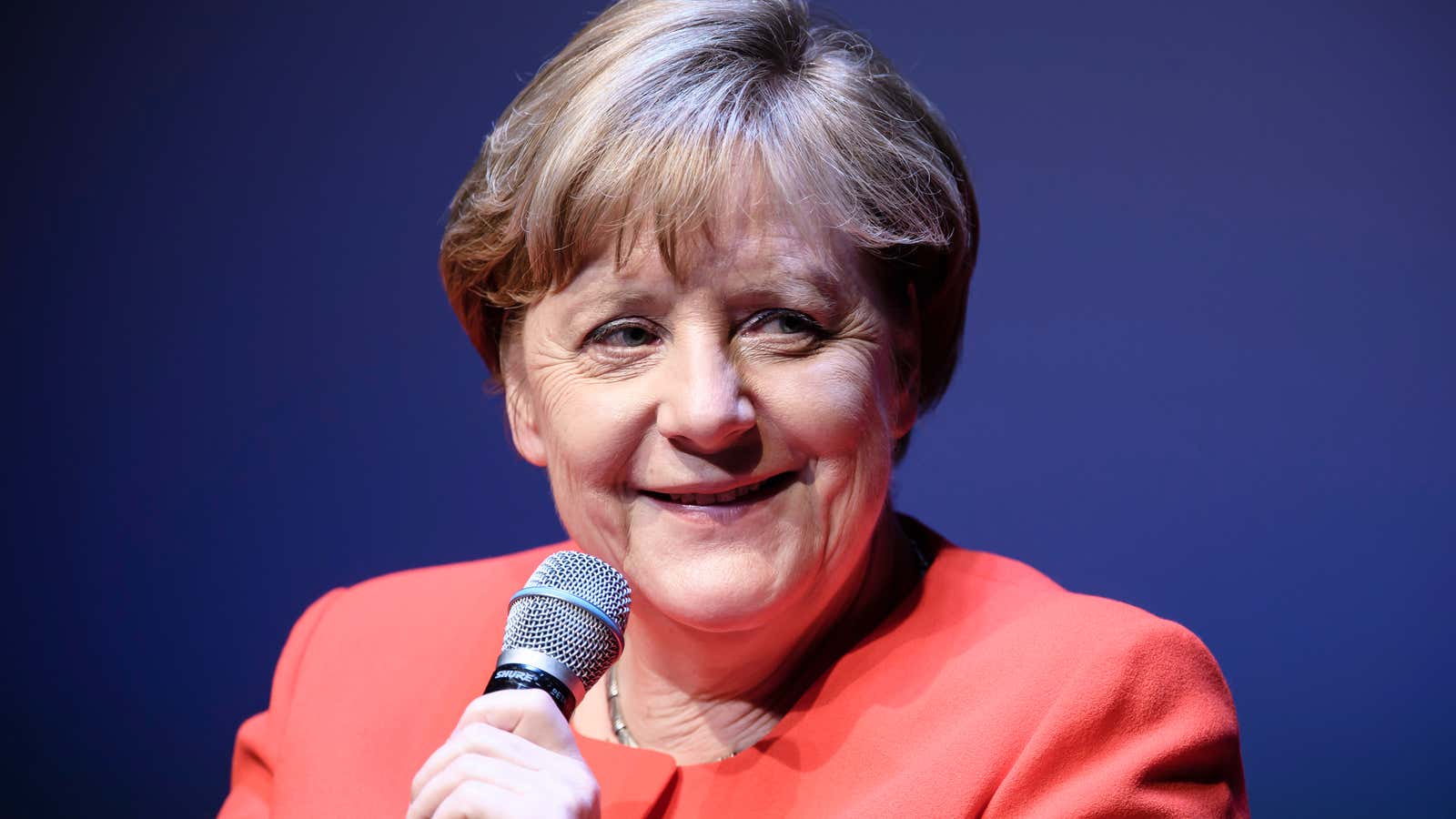Despite its reputation as a progressive country, Germany still hasn’t joined the 14 other countries in the EU (out of 28) and others like the US who have already legalized same-sex marriage—although civil unions have been permitted in the country since 2001. That may finally be about to change, after the German chancellor said in a TV interview on June 26 that she hoped the issue is “headed towards a conscience vote” among lawmakers.
Merkel’s party, the Christian Democratic Union, has long opposed gay marriage. Even Merkel herself, during her last federal election campaign in 2013, said she wasn’t sure about it “as far as children’s welfare is concerned.” On Monday, however, she said after visiting a lesbian couple who foster eight children: “I can no longer argue so on the basis of children’s welfare.”
With the federal election just three months away, Merkel’s tentative statement can also be viewed as a tactical move. Her party will need to form a coalition government in September, and her potential partners—the Greens, the Social Democrats, and the Free Democrats—have all said that the CDU needs to get on board with gay marriage or they won’t enter a partnership.
Merkel’s main challenger for the chancellorship, Social Democrat Martin Schulz, was swift to leap on Merkel’s statement today, demanding she quickly make good on her U-turn. Schulz is pushing for a vote on gay marriage in the Bundestag to happen this week before parliament breaks up for the summer vacation. There are conflicting reports on whether or not the vote will happen; Deutsche Presse Agentur says it is scheduled for Friday.
